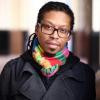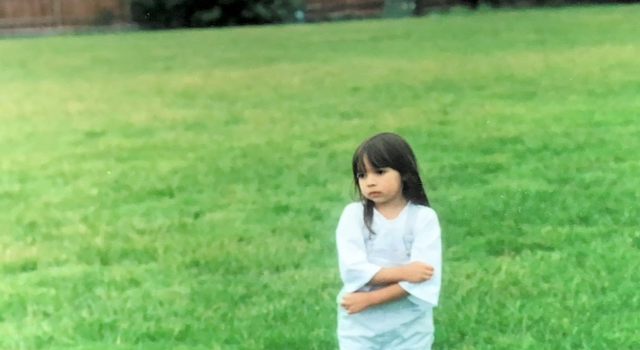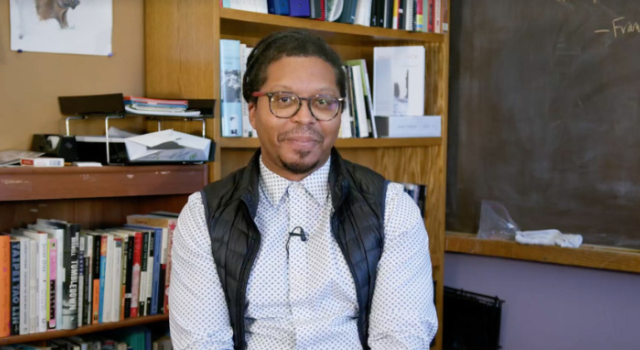
Nathan McClain

Nathan McClain (he/him) is the author of two collections of poetry: Previously Owned (Four Way Books, 2022), longlisted for the Massachusetts Book Award, and Scale (Four Way Books, 2017).
He is a recipient of fellowships from The Frost Place, the Sewanee Writers’ Conference, and Bread Loaf Writers’ Conference and is a Cave Canem fellow. He earned an M.F.A. from the M.F.A. Program for Writers at Warren Wilson College. His poems and prose have appeared in the New England Review, The Hopkins Review, Plume Poetry 10, The Common, and Poetry Northwest, among others. He teaches at Hampshire College and in the Brooklyn Writers Foundry Low-Residency M.F.A. Program. He serves as poetry editor of the Massachusetts Review.
Recent and Upcoming Courses
-
From the Italian word, "sonetto," meaning "little song," the sonnet is among the oldest, strictest, and most easily recognizable inherited poetic forms. In this intermediate poetry workshop, students will read, closely study, and practice drafting and revising a variety of different sonnets-Shakespearean, Petrarchan, Spenserian, and variations thereof. As this workshop level is intermediate, participants will be expected to possess a working knowledge and practice of foundational techniques of poetry. Students may read work by Jericho Brown, Natalie Diaz, Robert Frost, Douglas Kearney, and Meg Day, among others. Keywords:sonnet, craft, poetry, workshop
-
Considered the greatest graphic novel in the history of the medium, Watchmen "presents a world where the mere presence of American superheroes changed history-the U.S. won the Vietnam War, Nixon is still president, and the Cold War is in full effect." Damon Lindelof's adaptation/remix/continuation of the 1986 graphic novel updates its themes of Cold War and nuclear annihilation to center race and white supremacy. This course will closely examine both treatments, along with interstitial materials that act as supplementary documents and a crucial part of each narrative's structure. What can these stories teach us about racism, policing, propaganda, and uses/abuses of power? What can they teach us about the necessity of storytelling? Keywords:watchmen, graphic, comic, television
-
Increasingly, it would seem to be the preference of readers in our neo-narrative age-age of biography and memoir, age of the talk show, the podcast, and TTRPG actual play-an appetite for story. Or narrative. Which also applies to poetry. Though, the lyric poet might just as easily argue that every narrative poem obscures a lyric, which itself slows or suspends time. What occurs when a poem is more concerned with "how something felt" than "what happened"? What use is the lyric in poetry? In this course, participants will investigate such questions-we'll consider the lyric poem more generally, and we'll acquire and develop the craft and technique that builds such poems. Participants will have the opportunity to workshop their own poems as well as the poems of their peers. Students may read work by Charles Wright, Donald Justice, Donika Kelly, Sandra Beasley, and Emily Dickinson, among others. Keywords:creative writing, poetry, lyric, workshop
-
The late poet and essayist, Reginald Shepherd, in his thought-provoking essay, "The Other's Other," writes "I am just as much a black person when I write about spring snow and narcissus blooms as when I write about the South Bronx or the slave trade, and I am as much not." Poet, essayist, and editor, Camille Dungy, adds, "To bring more voices into the conversation about human interactions with the natural world, we must change the parameters of the conversation." For centuries, our writing about the living world has been defined by Anglo-American perspectives, though Black and brown poets and writers have offered unique perspectives on American social and literary history to broaden our concept of ecocriticism and ecopoetics. In this course, students will consider and examine the literature of nature from the lens of these poets and writers as well as explore their own unique relationships to the living, natural world through original poetry, fiction, creative non-fiction, and hybrid forms. Students may read and consider the work of Aimee Nezhukumatahil, Jericho Brown, Lucille Clifton, Jennifer Chang, and Ed Roberson, among others Keywords:creative writing, nature writing, ecopoetics, ecocriticism, environmental justice



